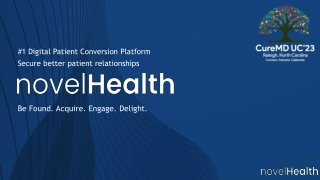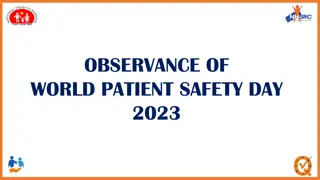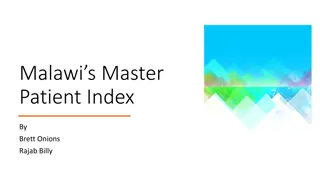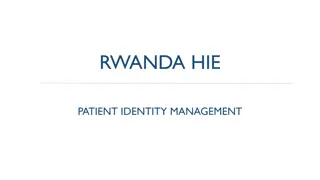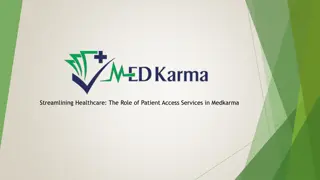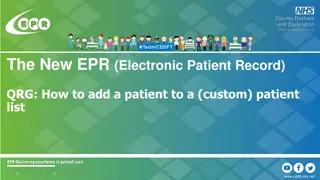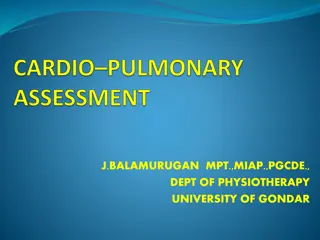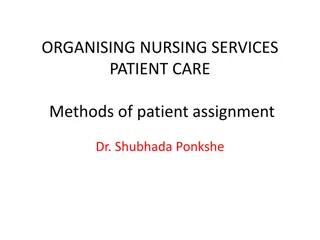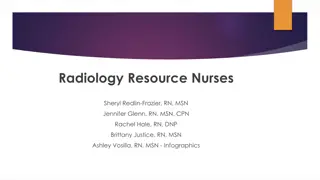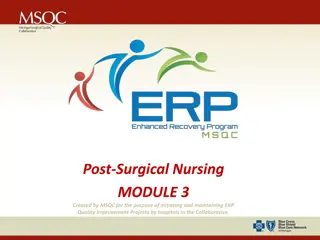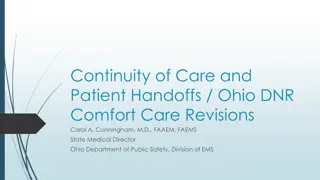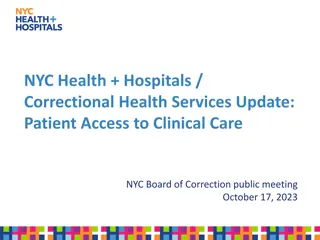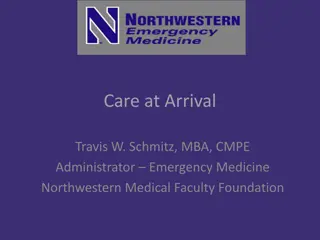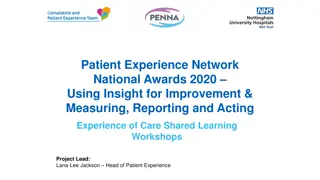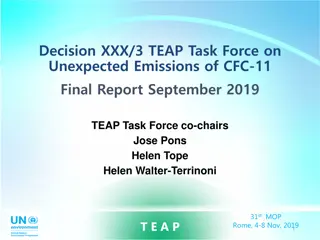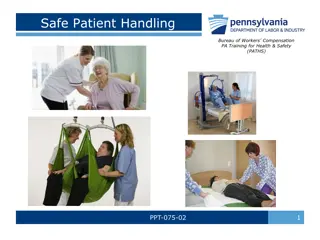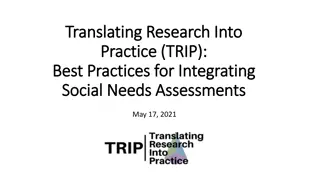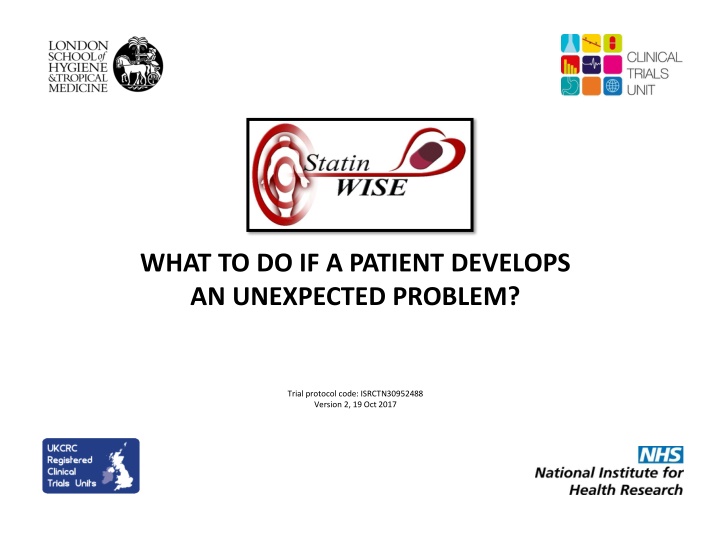
Managing Unexpected Patient Problems in Clinical Trials
Learn the steps to take if a patient in a clinical trial experiences an unexpected problem, such as serious adverse events or intolerable symptoms. Understand the process for reporting and unblinding treatment allocation, and who to contact for guidance. Ensure a prompt and appropriate response to safeguard patient safety and trial integrity.
Download Presentation

Please find below an Image/Link to download the presentation.
The content on the website is provided AS IS for your information and personal use only. It may not be sold, licensed, or shared on other websites without obtaining consent from the author. If you encounter any issues during the download, it is possible that the publisher has removed the file from their server.
You are allowed to download the files provided on this website for personal or commercial use, subject to the condition that they are used lawfully. All files are the property of their respective owners.
The content on the website is provided AS IS for your information and personal use only. It may not be sold, licensed, or shared on other websites without obtaining consent from the author.
E N D
Presentation Transcript
WHAT TO DO IF A PATIENT DEVELOPS AN UNEXPECTED PROBLEM? Trial protocol code: ISRCTN30952488 Version 2, 19 Oct 2017
If a patient develops a problem Problems can fall into one of the following categories: Serious adverse events Unblinding Intolerable symptoms
If a patient develops a problem If you have concerns about a participant in the trial, you should first contact the Principal Investigator or his/her delegate at your site Advice about the trial (not clinical care) is available from the StatinWISE Trial team at the CTU during office hours: Tel +44(0)20 7299 4684 Fax +44(0)20 7299 4663 Email: statinwise@Lshtm.ac.uk
Reporting an SAE For each serious adverse event, an Adverse Event Report form must be completed This should be completed directly onto the StatinWISE online database For further information see presentation titled Adverse Event reporting and completing the report form During the Baseline visit, as soon as a patient is randomised, s/he should be given an ALERT CARD which contains information on who to contact if they develop any problems
Unblinding the treatment allocation For StatinWISE there should be no need to unblind the allocated treatment. If some contraindication to statins develops after randomisation, the trial treatment can be stopped and standard care given. Unblinding should be done only in those rare cases (such as anaphylactic shock) when clinical management depends on knowing what the patient received. For urgent unblinding, a 24-hour telephone service is available: (+44) 07768 707500 The caller will be told whether the patient received atorvastatin or placebo by email or fax; this is to ensure that the CTU staff remain blind to the study treatment
Unblinding the treatment allocation An Unblinding Request Report form must be completed by the person who requested the unblinding CTU will send you a blank form after a request for unblinding has been granted If necessary, a Serious Adverse Event Report must be completed For further information see presentation titled Reporting Adverse Events
INTOLERABLE SYMPTOMS The GP will remain as the first point of contact for patients during the trial for their care. Intolerable muscle symptoms should be reported to the GP who will provide clinical care as directed by the appropriate NICE guidelines. For patients who experience intolerable muscle symptoms, and who do not want to be withdrawn early from the trial, the GP will be asked to confirm that the patient still meets the trial eligibility criteria. Patients who continue to meet the eligibility criteria can be offered the following options by the GP, depending on their clinical judgement: continue with their current treatment reduce the frequency of tablet use to every other day rather than daily stop for that treatment period and resume at the start of the next period
INTOLERABLE SYMPTOMS See the protocol for intolerable symptoms pathway (Protocol, Figure 2):
CONTACT US London School of Hygiene & Tropical Medicine Room 180, Keppel Street, London WC1E 7HT Tel +44(0)20 7299 4684 Fax +44(0)20 7299 4663 Email: statinwise@Lshtm.ac.uk

